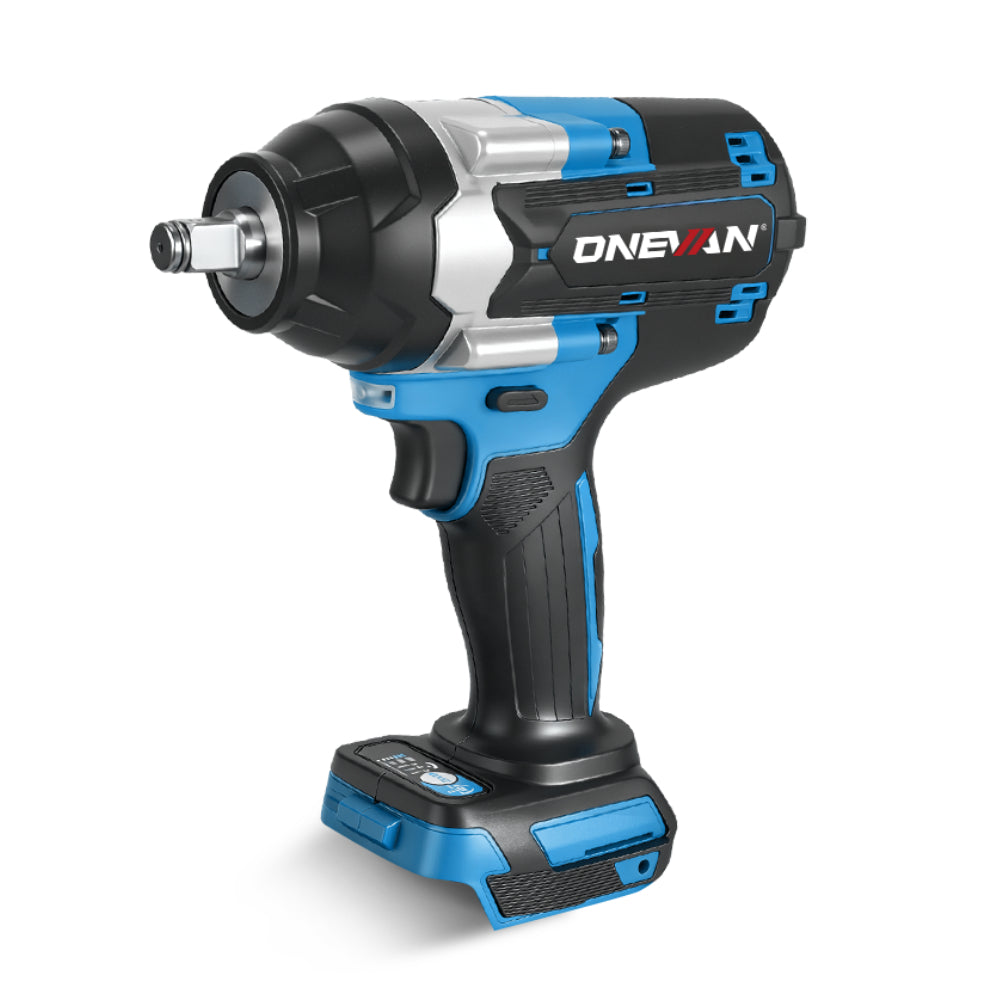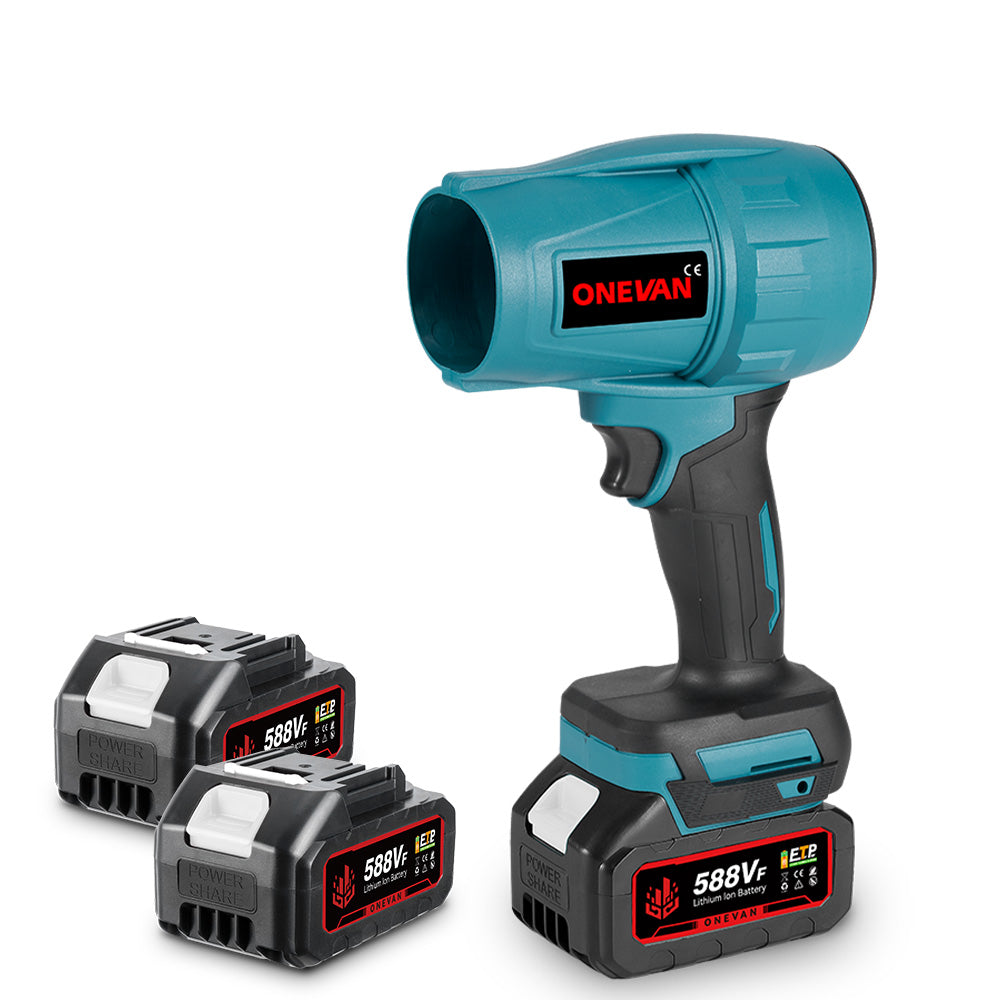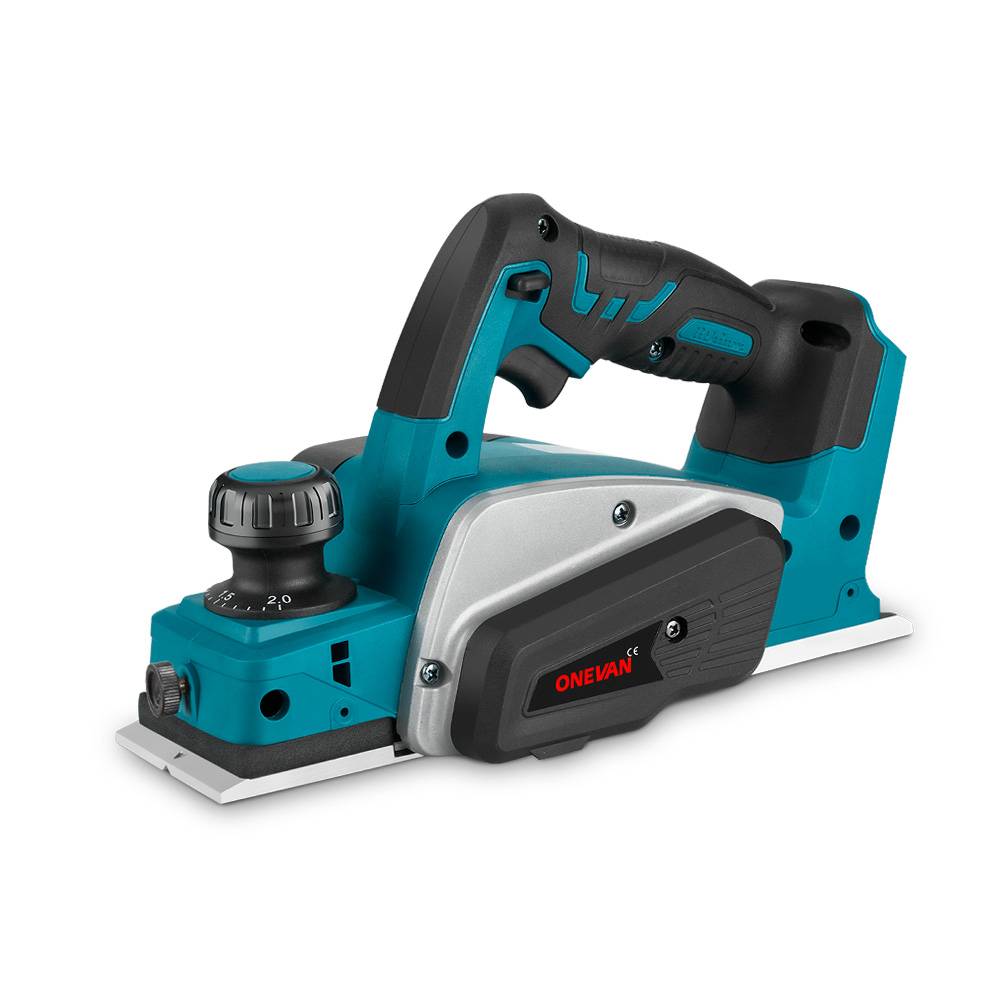Bar oil is a must-have for chainsaw maintenance. It helps cut friction, keeps things cool, and reduces wear on the chain and bar. Bar oil helps keep the cutting parts lubricated, which contributes to smoother operation and reduces the accumulation of sawdust and debris. When you pick bar oil, go for one made for chainsaws tool. Biodegradable bar oil is eco-friendly, while synthetic options work better in tough conditions. Regularly using the right bar oil will boost your chainsaw's lifespan and cutting power.
1. What is Bar Oil for Chainsaw?
Bar oil reduces friction between the chainsaw's bar and chain. When the chain spins fast, it creates much heat. Bar oil forms a protective layer, preventing wear and extending the life of these parts. Its sticky formula clings to the chain, lubricating even at high speeds.
Bar oil can also reduce heat buildup during operation, preventing overheating. Chainsaws can get hot during heavy cutting. The oil cools things down, preventing the bar and chain from overheating or warping. Proper lubrication with bar oil keeps your chainsaw cutting smoothly and prevents early wear.
Key benefits of bar oil include:
- Longer chain and bar life
- Better cutting performance
- Lower maintenance costs
- Protection from rust
- Smoother operation and less noise
- Improved cooling
- Safer operation
Experts strongly advise against using oils not specifically formulated for chainsaws, as they may not maintain appropriate viscosity and lubrication, which is crucial for safe and efficient operation.
2. The Importance of Bar Oil
Bar oil is crucial for keeping chainsaws in top shape. It does more than lubricate—it boosts performance, extends lifespan, and keeps you safer.
Lubrication
Bar oil’s main job is to cut down friction. This prevents heat from building up and protects the chain and bar. Less friction means less wear, fewer repairs, and smoother cutting. Bar oil also helps prevent binding and kickback, giving you more control. Quality bar oils work well in all temperatures, keeping performance steady.
Extended Equipment Life
Using bar oil regularly can add years to your chainsaw’s life. It reduces wear, prevents corrosion, and protects the guide bar from damage. Less wear means fewer chain replacements and less downtime. Proper lubrication also helps avoid costly breakdowns, thereby reducing the risk of accidents during operation.
Enhanced Cutting Performance
Bar oil reduces chain drag, facilitating smoother cuts and enhancing the efficiency of the cutting process. Less vibration means more comfort and control. It also helps keep chain tension steady, lowering the risk of breaks. Overall, it makes cutting easier and less tiring.
Environmentally Friendly Options
Many bar oils are now made to be eco-friendly. Biodegradable options protect soil and water. Non-toxic formulas and recyclable packaging also reduce environmental impact. These choices support sustainable forestry and a healthier planet.
Temperature Adaptability
Good bar oil performs at any temperature. High-quality oils stay thick in cold weather and don’t break down in the heat, meaning smooth cutting from freezing to very hot conditions.
Increased Safety
Bar oil makes chainsaw use safer. It keeps the chain from breaking, reduces kickback, and prevents overheating. Plus, it cuts down on smoke and debris, giving you a clear view of your work. Bar oil helps prevent equipment failures and avoid serious accidents. It is essential for safe chainsaw operation.
3. Types of Bar Oil

Bar oil has different types, each made for specific needs and uses. Understanding the features, benefits, and ideal uses of bar oil will ensure your chainsaw operates at its best.
Traditional Bar Oil
Traditional bar oil, also known as petroleum-based bar oil, is the most common type. It is made from refined petroleum and is suitable for most chainsaw tasks.
Key Features and Advantages of Traditional Bar Oil:
- It is affordable and easy to find.
- It performs well in moderate temperatures and is for general use.
- Petroleum bar oil works with most chainsaw models.
- It provides good lubrication and protects against wear.
When to Use Traditional Bar Oil:
- Use it for occasional chainsaw work.
- It is suitable for small woodworking or hobby projects.
- Use it for basic maintenance and repairs.
- Traditional bar oil is ideal if environmental impact is not a concern.
Traditional bar oil might not be the best choice in environmentally sensitive areas, for high-performance chainsaws, or in extreme temperatures.
Biodegradable Bar Oil
Biodegradable bar oil, also called eco-friendly bar oil, is made from renewable resources, such as vegetable oils or bio-based chemicals. It is suitable for use in areas with sensitive ecosystems and environmental regulations.
Key Features and Advantages of Biodegradable Bar Oil:
- It breaks down quickly, reducing harm to the environment.
- It is non-toxic and non-corrosive, which is good for ecosystems.
- Biodegradable bar oil meets strict environmental standards.
- It provides strong lubrication and protects against wear.
When to Use Biodegradable Bar Oil:
- It is suitable for use in environmentally sensitive areas, such as parks and wildlife reserves.
- Similarly, you can work near water where spills could happen.
- Use it for jobs that require compliance with strict environmental rules.
Generally, biodegradable bar oil costs more than traditional oil. Subsequently, they will perform poorly in extreme temperatures.
Synthetic Bar Oil
Synthetic bar oil is also called premium bar oil. It is made from chemical compounds. You would love it because it provides excellent lubrication and wear protection. Synthetic oils are considered top-rated for performance in extreme temperatures and heavy-duty use.
Key Features and Advantages of Synthetic Bar Oil:
- It provides impeccable lubrication and protection against wear.
- Synthetic oil maintains the thickness in extreme temperatures.
- It brings superior protection against rust and corrosion.
- You can use it in high-performance chainsaw models.
When to Use Synthetic Bar Oil:
- It is ideal for use in professional logging and heavy woodworking applications.
- It’s ideal for use in extreme temperatures, whether hot or cold.
- Synthetic bar oil is excellent for heavy-duty, long-term chainsaw use.
Synthetic bar oil is usually more expensive than both traditional and biodegradable options.
Specialty Bar Oils for Specific Conditions
Specialty bar oils are designed for certain conditions or applications:
- High-temperature bar oil: Made for very hot areas, like deserts or tropical regions.
- Cold-weather bar oil: Designed for very cold environments, such as arctic or sub-zero conditions.
- Food-grade bar oil: Safe for use in food-related areas where contamination needs to be minimized.
- EP (Extreme Pressure) bar oil: Created for high-stress tasks, such as cutting hardwoods or even metal.
Key Features and Advantages of Specialty Bar Oils:
- Specialty bar oils are designed to perform well in specific situations or environments
- They meet certain industry or regulatory standards.
They are helping to ensure safe operation by reducing the risk of equipment failure and contamination during specific tasks.
4. How to Choose the Right Bar Oil?

For a beginner, buying the right bar oil can take time and effort. The reason is that is a massive variety of bar oils available in the market. But it’s important. The right oil keeps your chainsaw running well and contributes to safe operation. We have gathered some practical tips to choose the best bar oil.
What to Look for in Bar Oil
When picking bar oil, focus on these things:
- Chainsaw Type and Model: Each chainsaw has specific needs. Check your chainsaw’s manual or the brand’s website. You can check information regarding the type and viscosity of oil that is best suited for your chainsaw.
- Operating Conditions: What temperatures will you be working in? For extreme heat or cold, you’ll need bar oil to withstand particular temperatures.
- Chain Type and Material: Some chains work better with specific oils. Check your chain type to ensure the best performance.
- Biodegradability: If you’re working in nature, go for biodegradable oil. It’s better for the environment.
- Cost and Availability: Cheaper oils can be tempting, but they may also not protect your chainsaw. Purchasing quality oil and performing regular maintenance can significantly reduce the likelihood of future repairs.
Weighing these factors will help you find the right bar oil for your chainsaw. If you are a seasoned pro looking for a reliable cordless chainsaw, consider the ONEVAN 125mm Brushless Cordless Circular Saw for demanding tasks.
This battery-operated chainsaw comes with advanced features to handle demanding cutting tasks.
- Solid wood
- PVC.
- MDF
- Plywood
- Stone
- Ceramic tiles
Key Features
- Bevel Cutting Angle Adjustable from 0° to 45°
- Solid Metal Guide Plate
- Ergonomic Design
Power and Performance
- Power: 1000W
- No-load Speed: 10800r/min
- Saw Blade Diameter: 125mm
- Cutting Depth: 45mm
How to Read Bar Oil Labels
Oil labels can be confusing, but here’s a quick guide:
- Viscosity Index: This tells you how thick the oil is and how it handles temperature changes. Higher viscosity is usually better in extreme weather.
- API Certification: This is an American Petroleum Institute certification. It shows that the oil meets certain performance standards. You should check for the API symbol as a sign of quality.
- Biodegradable: For eco-friendly oils, check for certifications from trusted groups, such as the Biodegradable Products Institute and the USDA BioPreferred program.
- Additives and Chemicals: Some oils contain extra additives. They are considered best for rust protection. Just be sure they’re safe for your chainsaw and the environment.
- Manufacturer Recommendations: Look for any tips from the brand, like how much oil to use or when to reapply. They also mention if the oil is best for specific chainsaw models.
Once you know what to look for, choosing bar oil becomes simple.
5. How to Properly Apply Bar Oil
Do you want to keep your chainsaw running smoothly? The right bar oil is the key. But it’s not just about any old oil; you need to apply it properly. Here’s a step-by-step guide on how to fill the oil reservoir and troubleshoot common problems.
Filling the Oil Reservoir
Filling the oil reservoir is simple. Here’s what to do:
- Find the oil reservoir on your chainsaw. It’s usually near the guide bar. If you can’t find it, check your manual.
- Check the oil level by looking through the sight glass or dipstick to prevent overfilling.
- Choose the right bar oil for your chainsaw. Use the type and thickness recommended in your manual or on the manufacturer’s website.
When filling the reservoir, use the right amount of bar oil to prevent leaks and other problems. Once you’ve filled the reservoir, screw the cap back on. It will prevent spills and keep the oil clean.
Some extras:
- Use a clean, dry funnel to prevent dirt from getting in the reservoir.
- Refrain from mixing different types of bar oil, as this will affect performance.
- If you need help deciding what oil to use, check your manual or contact the manufacturer.
Troubleshooting Bar Oil Problems
Even if you apply bar oil right, problems can still occur. Here are some common issues and how to fix them:
Oil Leaks: If oil is leaking near the reservoir or guide bar, check that cap is on tight. Check the guide bar and chain for damage. Replace if necessary.
Low Oil Flow: If you notice less oil flow, please inspect the reservoir level and fill it up if needed. It is important to ensure that the oil filter is neat and free of dirt. You should need to tune the oil flow as per your handbook instructions.
- High Oil Usage: If your chainsaw consumes too much oil, inspect the guide bar and chain for possible wear. If necessary, replace the guide bar or chain and ensure that the cap is securely tightened to avoid leaks.
- Rust or Corrosion on Chain: If you see rust or corrosion, ensure that you are using oil that provides rust protection. Clean and oil the chain regularly to prevent rust.
- Oil Thickness: If the oil is too thick or too thin you should check the type and viscosity. Make sure it is according to your working area temperature. It is recommended to read the manual for the right oil for the conditions.
6. Bar Oil vs. Other Lubricants
Bar Oil vs. Other Lubricants
You have read previously that the right bar oil will extend your chainsaw lifespan. In this section, you will read how bar oil is different from chain or motor oil.
Differences Between Bar Oil and Motor Oil
Bar oil and motor oil are similar. However, they have different purposes.
- Purpose and Composition: Quality bar oil is specifically formulated to meet the lubrication needs of chainsaws, ensuring optimal performance for various models. It sticks to the chain and bar, even as they spin at high speeds. On the other hand, motor oil is made for engines and doesn't have the same "stickiness" you need for chainsaws. This difference in the formula makes bar oil much more effective for lubrication and reduces wear on the chain and bar.
- Viscosity: Bar oil is formulated to maintain viscosity and stickiness, which helps it adhere to the chain and bar longer, especially during heavy-duty cutting, unlike many motor oils. Motor oil, due to its thinner consistency, can easily fling off, leading to faster wear on the chain and bar.
- Additives: Bar oil contains tacky additives to improve clinginess. These additives keep it from flying off as the chain spins. Motor oil, on the other hand, includes detergents and anti-corrosion agents meant for engine parts. These don’t help with chain lubrication and could even harm your chainsaw.
In short, motor oil may temporarily solve emergencies, but it’s not designed for chainsaws. Using bar oil ensures your chain and bar get the right lubrication.
Differences Between Bar Oil and Chain Oil
Bar oil and chain oil are designed for chainsaws, but they differ depending on the intended application.
- Focus of Lubrication: Bar oil is specifically for the bar and chain to prevent friction and wear on both. Chain oil, on the other hand, focuses mainly on keeping the chain well-lubricated. Some users consider chain oil a general term, while bar oil is often a subtype tailored to chainsaw bars.
- Tackiness and Formulation: Chain oil may come in varying thicknesses and cling levels, depending on the chain type or machine. Bar oil, however, has tackier additives to cling more securely to the chainsaw’s bar during high-speed work.
- Weather-Specific Types: Bar oil often comes in specific formulas for cold or hot weather to prevent it from getting too thick or thin. Chain oil is only sometimes offered in weather-specific versions, as bar oil is more finely formulated for chainsaws than bar oil is.
7. Conclusion
After reading this blog post, you should have a clear understanding of what bar oil is. How is it different from other oils? The most important thing is how to use bar oil in your chainsaw. Next, if you are planning to purchase a bar oil for your chainsaw, consider this guide to make a good decision.
8. FAQs
Can I use any oil as bar oil for my chainsaw?
No, it’s best not to use just any oil. Chainsaws need bar oil specifically designed to cling to the chain and bar. Motor oil won't stick longer and does not offer sufficient protection. Utilizing the appropriate bar oil can make your chainsaw operate more smoothly and extend its lifespan.
How often should you change the bar oil?
Every time you refill the fuel, you also need to replenish the bar oil. Chainsaws are quick to consume bar oil, so regularly checking the oil level can ensure smooth operation and prevent damage to both the chain and bar.
What happens if I run my chainsaw without bar oil?
Running a chainsaw without bar oil causes serious damage. The chain and bar will heat up from friction, leading to faster wear, possible overheating, and even chain breakage. Always check that you have enough bar oil before using your chainsaw.
Is it necessary to use specialized bar oil?
Yes, using specialized bar oil is necessary. This is designed to remain on the chain and bar, even when moving rapidly. It keeps the chainsaw lubricated well and safe from wear out. Ordinary oils cannot offer similar advantages and may result in quicker deterioration.
Can I mix different types of bar oil?
It's best to keep the same types of bar oil. Different oil types can contain unique additives that may adversely interact, so mixing them is not recommended. Mixing them could affect performance and reduce the effectiveness of the oil. Stick to one type to ensure optimal lubrication.









